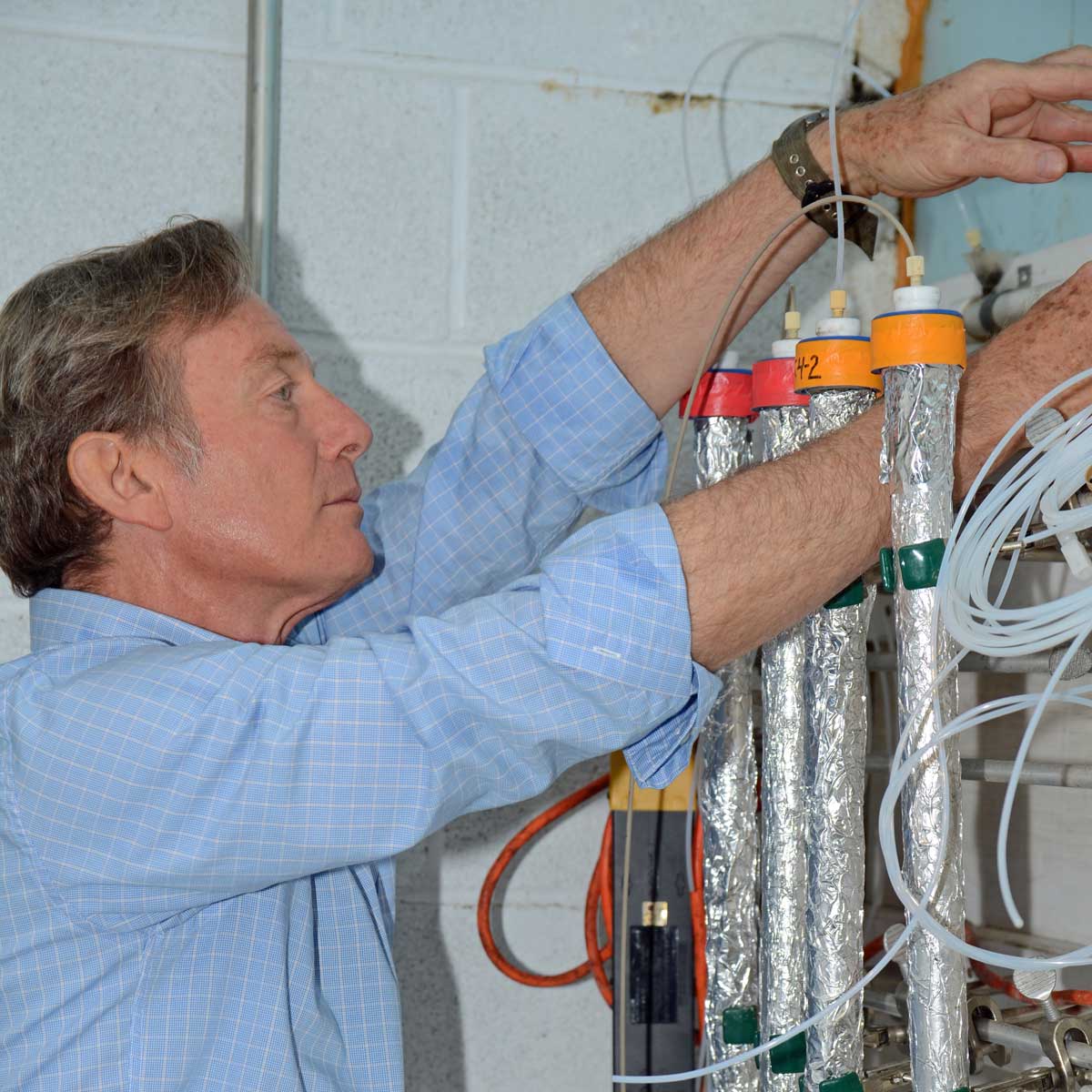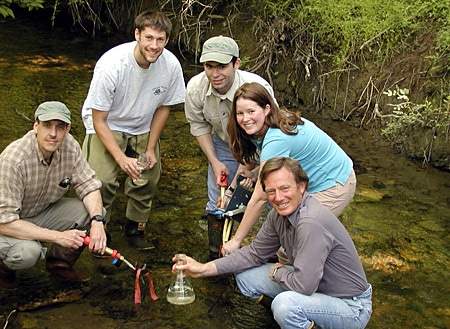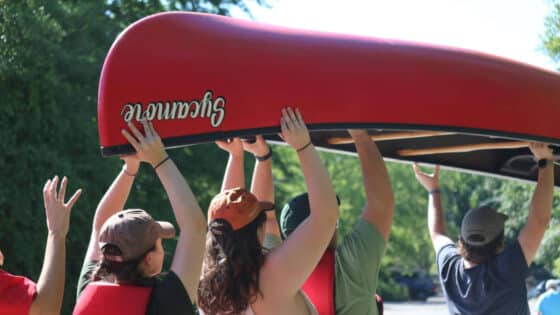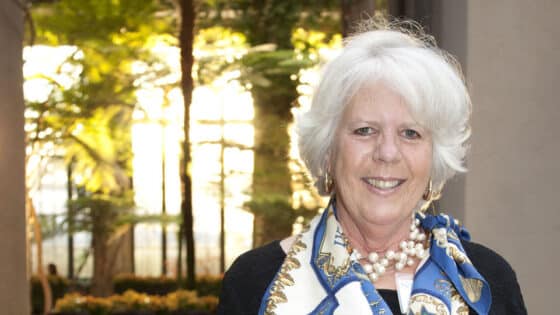MEDIA ALERT
FOR IMMEDIATE RELEASE: October 20, 2015
FOR MORE INFORMATION CONTACT:
Beverly M. Payton, Communications Director

A creative and innovative scientist, Kaplan was awarded a patent for the bioreactor he developed to measure how efficiently bacteria consume dissolved organic matter, and for the method for measuring contaminants in drinking water.
Louis A. Kaplan, Ph.D., accepted a one-year appointment as a visiting scientist at the federal agency that funds innovative scientific research.
AVONDALE, Pa. — Louis A. Kaplan, Ph.D., principal investigator of the Biogeochemistry Group at Stroud™ Water Research Center is taking a leave of absence to begin a one-year appointment as a visiting scientist, or “rotator,” at the National Science Foundation (NSF).
“I’m excited about this opportunity to meet some of the brightest minds in the field of ecosystem science, learn about cutting-edge research, and contribute my expertise to help inform and shape cross-cutting NSF programs,” said Kaplan, who will serve as program director in the Ecosystems Science Cluster in the Division of Environmental Biology, Directorate for Biological Sciences.
NSF is an independent federal agency that supports research and education across the fields of science and engineering. NSF’s rotator program provides a constant churn of fresh researchers who keep its programs current. Rotators, who make up 15 percent of its workforce, join with permanent staff, who are also program officers. Kaplan’s responsibilities will include overseeing NSF’s merit-review process to help define new funding opportunities; recommending which proposals the agency funds; and influencing new, potentially transformative, directions in scientific research.
“This is a difficult time for the scientific enterprise,” said Kaplan. “Federal support for research and development in the United States fell 16 percent in inflation-adjusted dollars from 2010 to 2015. So I want to do what I can to make sure the best science gets funded and especially help provide an opportunity for young scientists who will lead the field in the future.”
The Independent Research Development Program at NSF encourages its staff to remain active in ongoing research. This means about 20 percent of Kaplan’s time can be dedicated to continuing his work on an NSF-funded project that will provide new knowledge of the naturally occurring organic molecules in stream waters. The research sites include the White Clay Creek that runs behind Stroud Center’s headquarters in southern Chester County, Pennsylvania, and the Río Tempisque at Stroud Center’s Maritza Biological Station in the Área de Conservación Guanacaste of Costa Rica.
Kaplan, an internationally recognized expert in stream ecology, dissolved organic matter biogeochemistry and microbial ecology, has successfully obtained NSF funding throughout his career. A predoctoral NSF research fellowship obtained in 1972, while he was a senior at Franklin Marshall College, paid for his graduate studies at the University of California, Davis, and, later, at the University of Pennsylvania.

Stroud Center’s Biogeochemistry Group in 2005. From left to right: Sherman Roberts, David Richardson, Mike Gentile, Karen Rowley Hogan and Kaplan. Richardson and Hogan are among the dozens of undergraduate, doctoral and post-doctoral reasearchers Kaplan has mentored since 1981.
Kaplan started doing research at the Stroud Center while pursuing his doctoral studies at the University of Pennsylvania. At that time, he obtained a dissertation improvement grant from NSF that allowed him to purchase a carbon analyzer for Stroud Center, which he used to collect the first data on dissolved organic carbon on the White Clay Creek.
Since 1981, when he joined the science staff at Stroud Center, Kaplan has led or co-led more than 40 successful NSF grants totaling $12 million. This enabled him to support and mentor three doctoral students, 16 postdoctoral scientists, and 39 participants in the Research Experience for Undergraduates or Research Experience for Teachers program.
“Support from NSF provided me with the opportunity to pursue my research, contribute to our understanding of stream ecology, and train some of the scientists who now lead or will lead this field,” Kaplan said. “I’m happy for the opportunity to give something back to the research community, be an ambassador for Stroud Center at a national level, and bring back information that will help my colleagues be even more successful in writing competitive research grants.”
After his one-year appointment, Kaplan will have an opportunity to renew his contract for two additional years.



